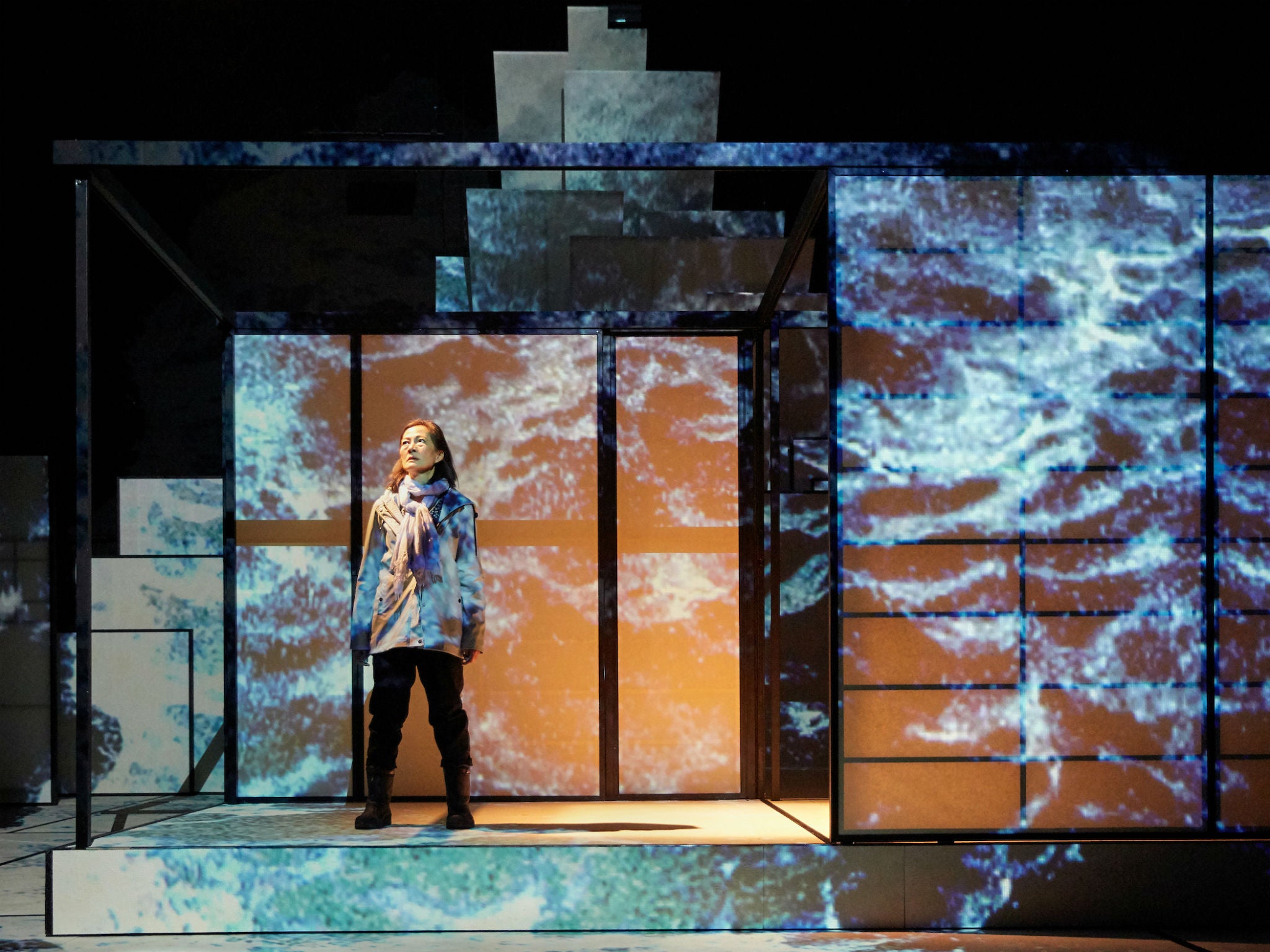The Great Wave, National Theatre, London, review: It sensitively intertwines the intimacies of private pain and the pressures of international politics
Family tragedy about a girl who apparently drowns on a Japanese beach takes on a political dimension in Francis Turnly’s epic thriller

Your support helps us to tell the story
From reproductive rights to climate change to Big Tech, The Independent is on the ground when the story is developing. Whether it's investigating the financials of Elon Musk's pro-Trump PAC or producing our latest documentary, 'The A Word', which shines a light on the American women fighting for reproductive rights, we know how important it is to parse out the facts from the messaging.
At such a critical moment in US history, we need reporters on the ground. Your donation allows us to keep sending journalists to speak to both sides of the story.
The Independent is trusted by Americans across the entire political spectrum. And unlike many other quality news outlets, we choose not to lock Americans out of our reporting and analysis with paywalls. We believe quality journalism should be available to everyone, paid for by those who can afford it.
Your support makes all the difference.Premiered in this engrossing co-production with Tricycle Theatre, Francis Turnly’s epic thriller unfolds in Japan and North Korea. It begins in 1979 with the disappearance of 17-year-old Hanako (Kirsty Rider) during a storm. At first, Japanese authorities assume the girl has been murdered, then that she was drowned by the great wave. Unwilling to accept she is dead, her devastated sister Reiko and their mother Etsuko (Kae Alexander and Rosalind Chao) spend the next 25 years searching for answers.
In parallel scenes, we see Hanako’s actual fate. Turnly’s play is, in part, based on real-life stories of Japanese civilians being abducted to North Korea. So at the same as we witness her mother and sister gradually stirred to activism by the mystery of her disappearance, we watch the systematic attempts to reconstruct Hanako as a devout North Korean and her shifting relationship with the trainee spy, Jung Sun (Tuyen Do), she is training to pass as unimpeachably Japanese.
The play sensitively intertwines the intimacies of private pain and the pressures of international politics. The Japanese foreign office obstructs the efforts of the families of the abducted, arguing that the country cannot afford to antagonise North Korea, and also being wary about the country’s past war crimes, such as the ‘comfort women’ forced by the Imperial Japanese army to work as sex slaves in the occupied territories, which Hanako is now hearing about for the first time. There is never any glib attempt at false equivalence here. Over the quarter century depicted, Rider ages very movingly, as Hanako’s memories of her original family are complicated by the demands of the family foisted on her by a protective member of the regime – an arranged marriage with an orphan of tainted “hostile” lineage by whom she has a daughter.
Questions of identity, of siblinghood and personal responsibility are raised with speed and acuity in Indhu Rubasingham’s remarkably fluent and beautifully acted production. We’re whisked from location to location by Tom Piper’s excellent rotating paper design, with swirling videos of waves provided by Luke Halls. An excellent drama that has been granted an acute degree of topicality.
Until 14 April (nationaltheatre.org.uk)
Join our commenting forum
Join thought-provoking conversations, follow other Independent readers and see their replies
Comments